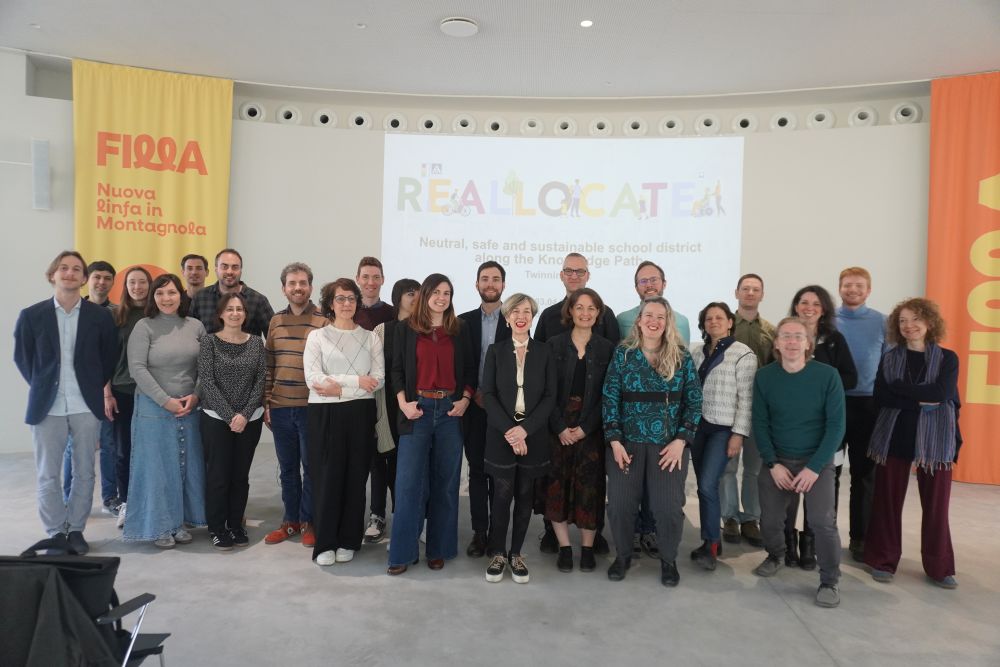
News
Paired cities Bologna and Barcelona share vision to reclaim and transform public space
28 April 2025
While smart technologies and data-driven methods are key for informing innovative sustainable urban mobility solutions, REALLOCATE’s mission is one that is also deeply social, placing citizens and communities at its core.
Earlier this month, the City of Bologna, one of the ten cities participating in REALLOCATE—welcomed city representative from Barcelona, horizontal partners; NUDGD, International Federation of Pedestrians (IFP), Factual, Dekra Automobil, Barcelona Supercomputing Centre (BSC), European Cyclists’ Federation (ECF), Eurocities and ICLEI for a two-day Visit to demonstrate the city's efforts to transform streets into inclusive, green, safe and future-proof urban spaces, where communities live and thrive.
The visit gathered participants at the new sustainability pavilion in the historic Montagnola Park located in Bologna’s city centre. The hub, commissioned by the Municipality of Bologna, designed by architect Mario Cucinella and managed by the Fondazione IU Rusconi Ghigi (FIU), has both a civic and social function and acts as a tangible example of thoughtful design, placing community at its centre.
The visit offered a valuable opportunity for Bologna and Barcelona to exchange practices, share experiences and tools for creating more inclusive and accessible spaces. From Bologna’s Accessibility Plan and Gender Atlas to the work of the Municipal Institute for People with Disabilities (IMPD) in Barcelona, both cities demonstrated how participatory processes can shape urban transformation.
Bologna is committed to placing people at the forefront of mobility interventions
Home to approximately one million people in the metropolitan area, Bologna is a city with a rich history and progressive climate plans. Fresh from accepting the EUROPEANMOBILITYWEEK Award 2024, the City of Bologna’s Deputy Mayor Anna-Lisa Boni, welcomed REALLOCATE partners with a clear message that set the tone for the entirety of the Twinning Visit:
“The real challenge is shifting the paradigm to a more systemic approach. Challenges are getting more and more complex — more entangled and integrated. Changing the ways we work, both inside the municipality and outside, is probably more difficult than achieving climate neutrality because it means changing the culture — reallocating responsibility, leadership, and resources. It’s about changing the way we do things”
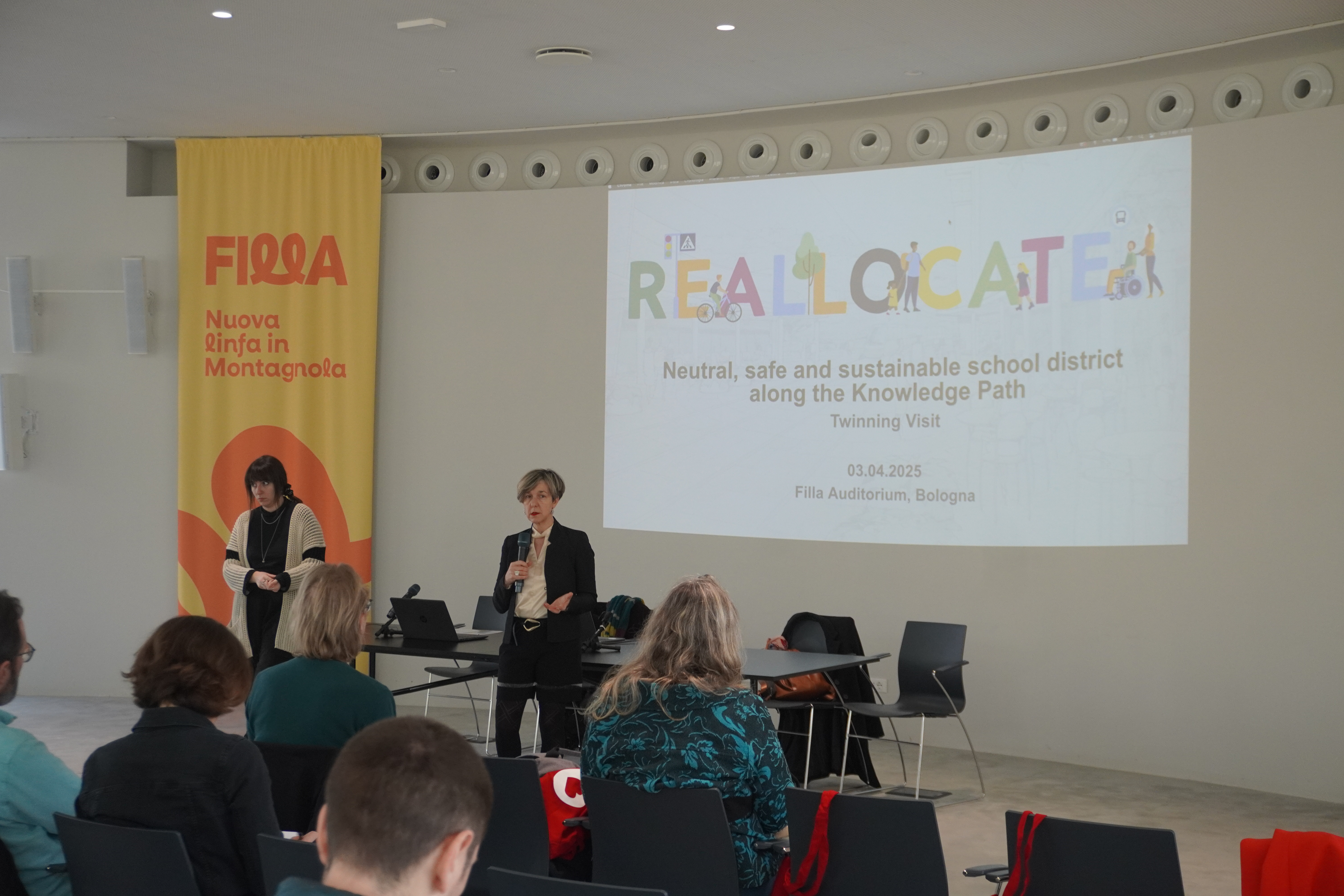
Bologna’s & Barcelona’s Exchange on Accessibility Planning
One highlight from the Twinning Visit was an in-depth exchange between Bologna and Barcelona, spotlighting both cities’ approaches accessibility planning and gender mainstreaming.
Developed in the framework of Bologna’s Sustainable Urban Mobility Plans (SUMP), Bologna’s Accessibility Plan (PEBA - Architectural Barriers Elimination Plan - presented in 2025) goes beyond improving physical infrastructure. The plan aims to identify and remove architectural barriers and enhance autonomy, comfort, safety and access for all road users in public spaces. It brought together a multidisciplinary working group, including local police, community members and urban planners, as well as the recruitment of five diversity managers, to assess barriers affecting people with reduced mobility, physical disabilities, older people, children and other vulnerable groups. As a result, the city designed actionable and technical solutions (e.g. pavement maintenance, increased tactical marking) to remove barriers and make the city more accessible.
The plan also recognised ‘accessibility enhancers’, such as the two new tram lines currently under construction, which will help to better connect the entire city. These major shifts to the urban fabric show how public transport can boost autonomy, reduce car dependency and reimagine how we share space.
Chiara Girotti from Bologna’s Mobility Department stated:
“The idea here is that people with disabilities can hop on the tram in the very outskirts of the city and easily reach the centre, where maybe they need to access some services— or vice versa.”
Another key mobility development presented was Bologna Verde, a city-wide programme to better integrate green spaces in urban areas, making them less polluted, and more accessible and inclusive. Crucially, the programme included co-design workshops with citizens and interventions strategically launched in underserved neighbourhoods.
The city also shared its work on gender-inclusive policies, informed by its ‘Gender Atlas’—a data-driven initiative that uses Geographic Informative Systems (GIS) mapping and gender aggregated data to identify inequalities in access to urban spaces. Through a European Investment Bank-funded project, Bologna is working to reduce gender gaps in urban services and design, ensuring that the lived experiences of all residents are reflected in planning processes.
As part of the exchange session, Barcelona echoed this sentiment, with IMPD presenting their longstanding work trying to better integrate accessibility and disability rights across all city departments and improve gender mainstreaming. From a cross-department collaborative approach to a city-wide accessibility study, covering over 900 city areas, such as public spaces, transport, public buildings and services to assess accessibility levels, their approach ensures that disability rights, gender perspectives and just urban design are fully integrated in every step along the way.
Laura Trujillo from Barcelona's municipal Institute for people with disabilities (IMPD) shared:
“We recruited a team of 56 people—40 of them had different types of disabilities, representing physical disabilities, mental health conditions, intellectual disabilities, hearing and visual impairments. So, we were proud to say that the field work was done in an inclusive way”
Community Participation is Key
Throughout the Twinning Visit, one message resonated widely: urban transformation only happens when residents and stakeholders are involved. Bologna’s ‘District Labs’, facilitated by FIU, was a clear example of this. Held in neighbourhoods across the city, they provided the chance for dialogue and feedback between the municipality and the community and helped to inform the first two interventions shown to REALLOCATE partners.
As examples of tactical urbanism, the pedestrianised school squares at Via Procaccini and Via di Vincenzo were both transformed from car parks into safe, accessible public spaces. While the intervention at Via di Vincenzo is now permanent, the transformation at the Via Procaccini remains a temporary pedestrian space, planned to last approximately 12 months.

To implement these pedestrian school squares, the city gathered months of data before presenting it to residents and local authorities. This shows how evidence-based, participatory planning can be used as an objective tool to reclaim space for people, especially for those who may otherwise be left out of traditional urban planning processes. Discussions amongst partners following the visit prompted questions of strategies to turn tactical urbanism interventions into permanent change.
Both Bologna’s and Barcelona’s success in implementing urban planning and mobility changes rested heavily on involving citizens from the outset, particularly those most affected by change, which has proven essential for long-term urban transformation.
Using Soft & Hard Interventions in Urban Planning
The journey to transform streets into inclusive, green, safe and future-proof urban spaces, where communities live and thrive, can sometimes be a challenge. However, throughout the Visit, a recurring theme emerged: using a multi-layered approach of ‘hard’ structural changes and ‘soft’ behavioural changes work in tandem to reshape public space.
The blending of these approaches was particularly apparent on day 2, when REALLOCATE partners took part in interactive workshops in the Parco Grosso pilot areas. The interactive field session encouraged partners to use the tools firsthand and provide feedback. The first workshop, a walking audit, led by IFP, split partners into subgroups to assess walking conditions for road users based on footpath quality, crosswalk design, safety, comfort and community care.
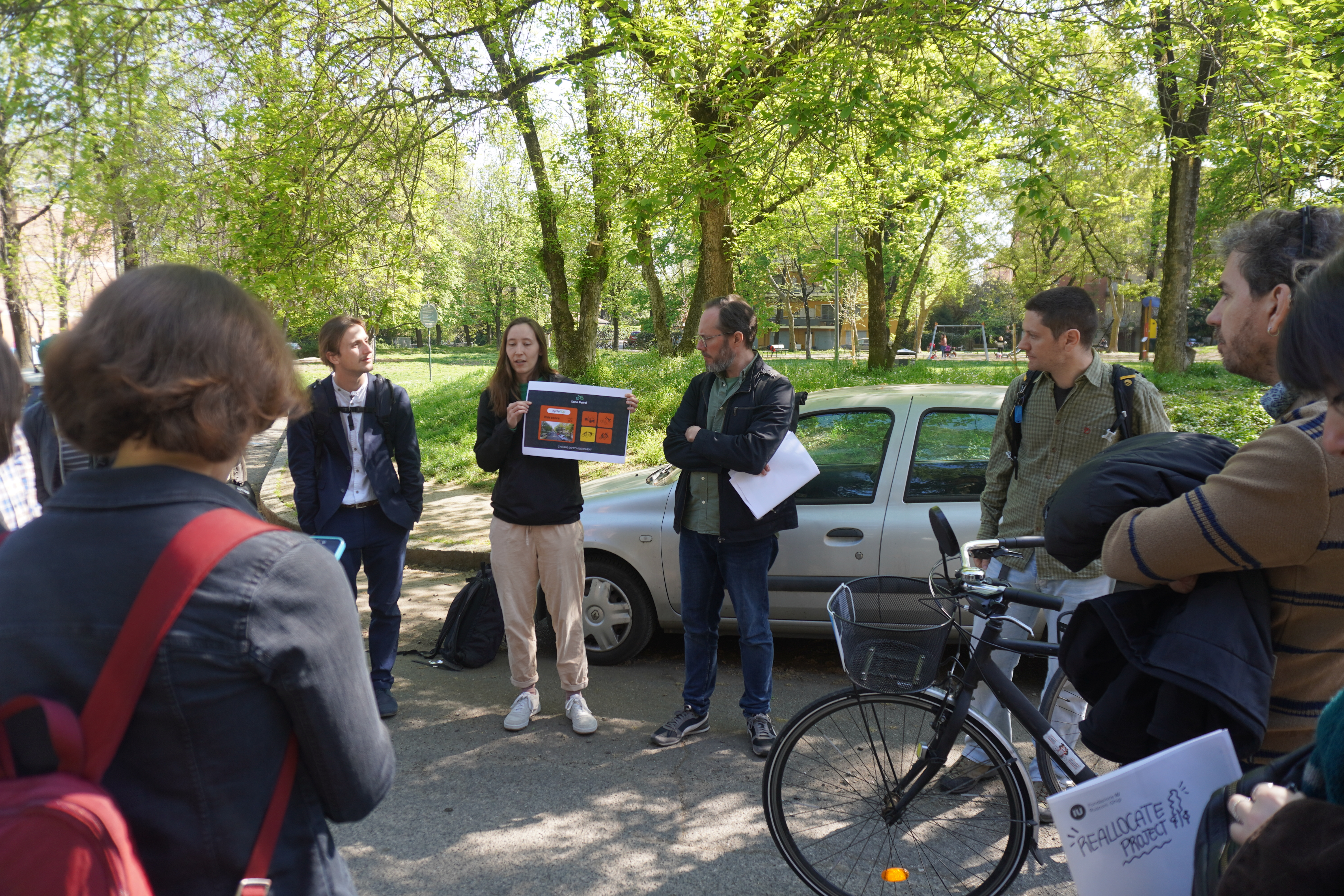
In the second workshop, cycling safety assessments and possible hard and soft interventions were also explored, co-led by Factual and ECF. The workshop introduced the LanePatrol tool, which uses data to identify and promote safer cycling infrastructure.
Later that afternoon, DEKRA Automobil hosted a workshop where discussions focused on traffic safety data and visualisation tools, highlighting the value of multi-source data to strengthen traffic safety measures and better understand the impacts of shared spaces on safety.
One notable ‘soft’ intervention was observed during the third site visit to the Montagnola park project. The “Nottambula Bus” is a nighttime bus service connecting Bologna’s suburbs to the city centre for women and vulnerable groups. The initiative reflects on how cities, like Bologna, are rethinking public space and effectively using awareness-raising campaigns as a tool for change. With up to 28 helpers in the busy summer months to provide support, information and accompany anyone who may not feel safe. The Montagnola park (meaning little hill in Italian) has reclaimed spaces that were previously used for antisocial activity, into safe and accessible public areas for everyone.
The Twinning Visit gave insights into both Bologna and Barcelona’s multi-layered approach, where data and community engagement intersect to create more inclusive, green, safe and future-proof urban spaces.
Shared Solutions for Shared Challenges
The co-learning aspect of the Twinning Visit was evident from the beginning during the parallel sessions on fostering behavioural change, led by Nudgd, and planning for alternative transport, led by IMPD and SRM (The local Authority for Public Transport in Bologna area.)
Discussions focused on feasible tools for communications campaigns to change mobility behaviour. Horizontal partners shared common challenges to nudging mobility habits—from the perceived lack of cyclists' safety, and limited enforcement of low-speed zones, to challenging the appeal of private use vehicles to get from A to B.
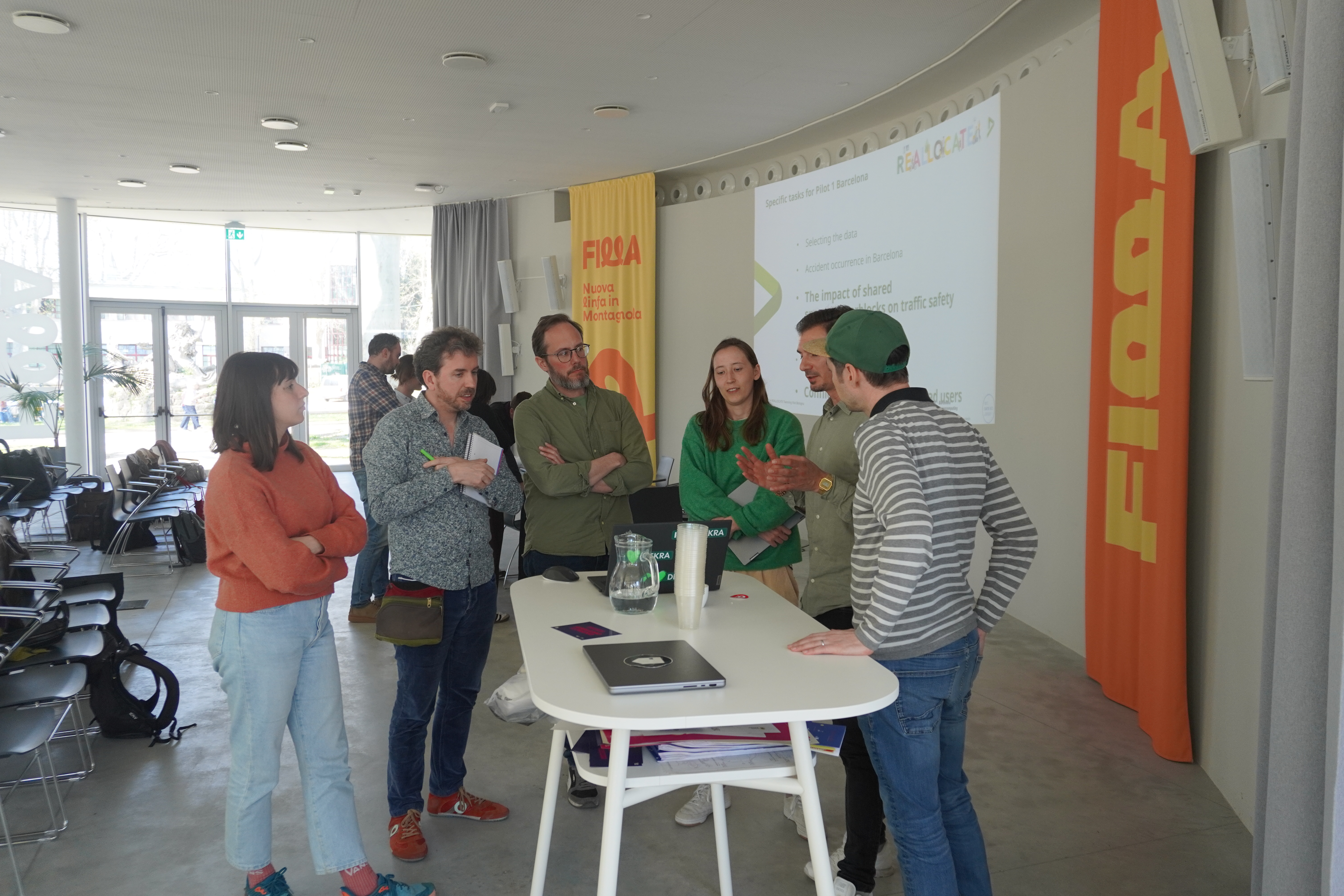
Meanwhile, the planning for alternative transport session, allowed partners to discuss together and share lessons learnt from Barcelona and Bologna using door-to-door services to compliment public transport, as well as experiences from implementing Demand Responsive Transport (DRT) systems.
While both Lead and Twin cities, Bologna and Barcelona differ in size and structure, their shared challenges, and shared ambitions towards greener, and more sustainable urban spaces, made for rich exchanges through the Twinning Visit. Whether through site visits, interactive workshops or parallel sessions, the mix of cultural perspectives revealed fresh solutions and ideas for moving forward.
A special thank you to the Comune di Bologna and Fondazione IU Rusconi Ghigi for hosting REALLOCATE and for sharing their inspiring approaches to reclaiming public space, prioritising accessibility, safety and inclusion. Thank you also to our Horizontal Partners—Nudgd, International Federation of Pedestrians, FACTUAL, DEKRA Automobil, Barcelona Supercomputing Center, and European Cyclists' Federation—for their insightful contributions and efforts!
What next?
REALLOCATE continues to connect Lead and Twin cities through Twinning Visits to learn and exchange from each other. By combining data-driven urban planning with inclusive community engagement, cities can progress towards mobility systems that work for everyone.
Stay tuned for the next Twinning Visit, which will take place in Warsaw, Poland, in May.
Image (ICLEI)
All news

This project has received funding from the European Union’s Horizon Europe programme under grant agreement No. 101103924. Views and opinions expressed are however those of the author(s) only and do not necessarily reflect those of the European Union or the European Commission. Neither the European Union nor the granting authority can be held responsible for them.
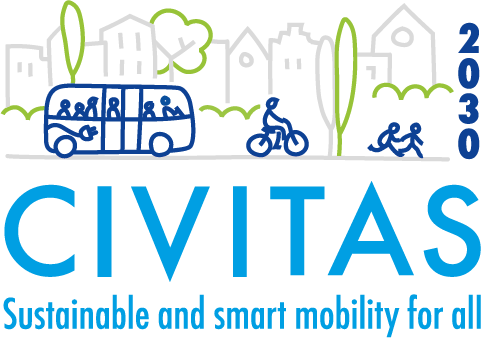

REALLOCATE is a project under the CIVITAS Initiative, an EU-funded programme working to make sustainable and smart mobility a reality for all, and contributes to the goals of the EU Mission Climate-Neutral and Smart Cities.
